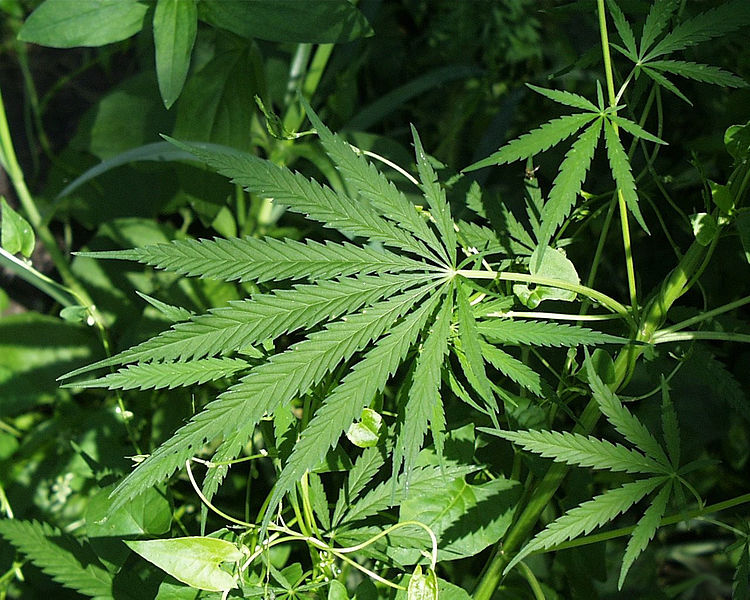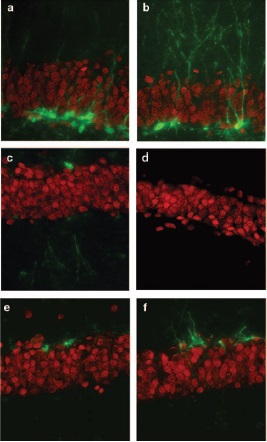Sometimes, what your brain wants is not always good for your body. Donuts are a good example. It’s early morning and you’re driving to work after a nice breakfast of black coffee and two eggs, easy-over, with bacon. Yet, you’re still hungry and having difficulty paying attention to the traffic. Why? Your brain is not cooperating because it is not satisfied with that breakfast because it lacked one critical ingredient that your brain urgently needs: sugar.
The post Why you must stop for coffee and donuts this morning appeared first on OUPblog.
The brain is a product of its complex and multi-million year history of solving the problems of survival for its host, you, in an ever-changing environment. Overall, your brain is fairly fast but not too efficient, which is probably why so many of us utilize stimulants such as coffee and nicotine to perform tasks more efficiently. Thus far, no one has been able to design a therapy that can make a person truly smarter.
The post A magical elixir for the mind appeared first on OUPblog.
Over the past forty years, many of my students have shared their personal experiences with hallucinogenic drugs. They are typically more fascinated, than frightened, by the experience. About sixty years ago the scientist C.H.W. Horne commented that "It is remarkable that one characteristic which seems to separate man from the allegedly lower animals is a recurring desire to escape from reality.”
The post What 4,000 years of hallucinations have taught us about our brain appeared first on OUPblog.
Our brain lives in a symbiotic relationship with the bugs in our gut. Whatever we eat, they eat. In return, they help our brain function optimally in a variety of ways. During the past few years, it has become increasingly apparent that in the absence of bacteria humans would never have evolved to our current level of cognitive performance. Our brains are profoundly dependent upon a wide range of chemicals produced by these gut bugs.
The post How do gut bugs affect brain health? appeared first on OUPblog.
I am often asked whether eating particular foods can enhance mood and treat the symptoms of depression. With very few exceptions, the answer is no. In contrast, our mood can be easily depressed by our diet. Why? For adults, the brain responds primarily to deficits, not surpluses, in the diet.
The post Can your diet make you feel depressed? appeared first on OUPblog.
Does coffee enhance marijuana? A study published recently in the Journal of Neuroscience (Vol 34 (19):6480-6484, 2014) by neuroscientists from the Integrative Neurobiology Section of the National Institute on Drug Abuse, a branch of the National Institutes of Health, has finally provided a definitive answer: Yes, No, and it depends.
The post The role of marijuana in your coffee addiction appeared first on OUPblog.
Caffeine is the world’s most commonly abused brain stimulant. Daily caffeine consumption by adolescents (ages 9-17 years) has been rapidly increasing most often in the form of soda, energy drinks, and coffee. A few years ago, a pair of studies documented that caffeine consumption in young adults directly correlated with increased illicit drug use and generally […]
The post Is caffeine a gateway drug to cocaine? appeared first on OUPblog.
Everyone knows that aerobic exercise is good for the body, but is it always as good for brain? Furthermore, is exercise better than eating lots of chocolate for the aging brain? A recent study published in the journal Nature Neuroscience by a group of scientists from Columbia University and NYU gave a large daily dose […]
The post Is chocolate better than exercise for the brain? appeared first on OUPblog.
Does marijuana produce an amotivational syndrome? Whether the amotivational syndrome exists or not is still controversial; there are still too few poorly controlled small studies that don't allow a definitive answer. Most people who use marijuana don't develop this syndrome.
The post Does marijuana produce an amotivational syndrome? appeared first on OUPblog.
By Gary Wenk
Marijuana is the leafy material from Cannabis indica plant that is generally smoked. By weight, it typically contains 2%-5% delta-9 tetrahydrocannabinol (THC), the primary psychoactive agent. However the plant also contains about fifty other cannabinoid-based compounds, including cannabidiol (CBD).
One Internet ad claims that “cannabidiol (CBD) can cure arthritis, multiple sclerosis, chronic pain, schizophrenia, and epilepsy.” CBD is the main non-psychotropic cannabinoid present in the Cannabis sativa plant, constituting up to 40% of its extract. Somehow this one particular component of the marijuana plant has become much more popular than all of the sixty (at least) other biologically active molecules that have been isolated from this plant, to the point where growers are breeding marijuana plants with significantly higher levels of CBD.

Why are people so excited about CBD? The answer lies in unpacking a series of complex truths, making distinctions between what is known and what is not known, and dispelling some false claims.
The human brain naturally possesses a pair of protein receptors that respond to endogenous marijuana-like chemicals. These receptors are incredibly common and are found throughout the human brain. When a person smokes marijuana, all of the various chemicals in the plant are inhaled, ultimately, into the brain where they find and bind to these receptors, similar to a key fitting into a lock. Which receptors are affected, and what parts of the brain are involved, differs for just about everyone, depending upon their genetic make-up, drug-taking history, and expectations regarding the experience; the last factor being commonly known as the placebo effect.

The images above come from Dr. Wenk’s research at Ohio State University, and demonstrate an increase in hippocampus neuron activity in rats following a cannabinoid treatment.
In addition, the chemicals inhaled into the brain also interact with a complex array of other neural systems; these interactions also contribute to the overall psychoactive experience, such as the marijuana’s ability to reduce anxiety, produce euphoria, or induce “the munchies.” My own research has demonstrated the positive effects of stimulation of the endogenous cannabinoid neural system in the aging brain.
Both CBD and THC are capable of interacting with this complex variety of proteins. However, and this is where things get interesting, they do not do so with the same degree of effectiveness. Scientists have shown that THC is over one thousand times more potent than is CBD, meaning a person would need to consume 1,000 “joints” of the genetically modified CDB-marijuana plant to get high. This chemical property of CBD has led to the accurate claim that CBD does not make one feel “high.” However, the low potency of CBD may also indicate that, by itself, it offers limited clinical benefits – currently- no one knows. Animal studies have discovered many beneficial effects of CBD but only when administered at very high doses.
What has become quite apparent is that no single component of the plant is entirely good or bad, therapeutic or harmful, or deserving of our complete attention. To date, all of the positive evidence supporting the use of medical marijuana in humans has come from studies of the entire plant or experimental investigations of THC. Given the very low potency of CBD within the brain it is highly unlikely that CBD alone will provide significant clinical benefit. Some small clinical trials are being initiated; until rigorous scientific studies are completed no one can claim that CBD is better than THC.
Gary L. Wenk, PhD., a Professor of Psychology & Neuroscience & Molecular Virology, Immunology and Medical Genetics at the Ohio State University and Medical Center, is a leading authority on the consequences of chronic brain inflammation and animal models of Alzheimer’s disease. He is also the author of Your Brain on Food: How Chemicals Control Your Thoughts and Feelings.
Subscribe to the OUPblog via email or RSS.
Subscribe to only health and medicine articles on the OUPblog via email or RSS.
Image Credit: First image is from United States Fish and Wildlife Service. Public Domain via Wikimedia Commons.
The post Is CBD better than THC?: exploring compounds in marijuana appeared first on OUPblog.





